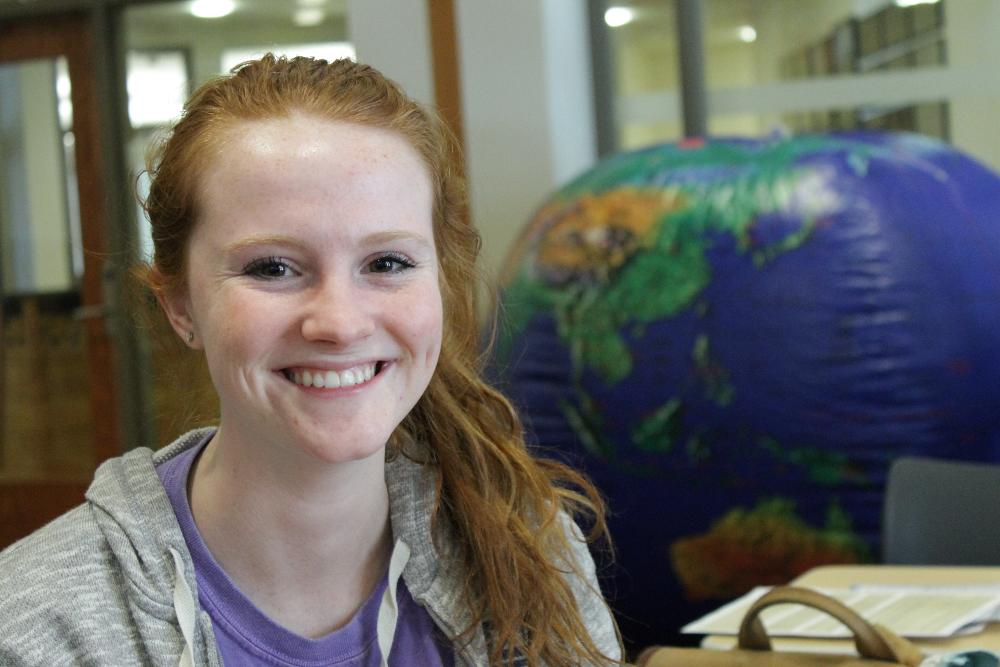Passport Day 2017
A passport. A tiny little book that at first glance may seem insignificant. But having a passport is an essential first step in getting an international education, and being able to engage in a globalized society.This spring, CU Boulder Education Abroad sponsored passport applications for 120 students with financial need. CU Passport Day, held on February 10th, brought in U.S. passport agents from across the Front Range to assist students and process their applications. This is the second year that Education Abroad has run this initiative, with the goal of giving students in need and from diverse backgrounds access to the world. Our office directed this initiative towards students from the McNeill Academic Program, the LGBTQ Resource Center, the CUE, the BOLD Center, the Diverse Scholars Program, and the U.S. Department of Education’s TRIO program for first-generation college students.
The cost of a passport can be a significant barrier to entry, especially for students deciding between a passport and a textbook they need for class. The process of applying for a passport can be overwhelming and it can be difficult for students with busy schedules to arrange an appointment at a post office to submit the application. Passport Day aims to remove these barriers. On February 10th, students were able to drop by and were provided with resources and support on completing the application for weeks before the event.
Amalia Espinoza-Ochoa, a Spanish and Psychology double major from Denver, came for a renewal. She hopes to spend a semester in Madrid during her junior year. Amalia sees the opportunity to go abroad as a chance to explore her own adaptability in a radically new environment. The Spanish she will speak in Spain is different from the dialect she speaks here, and she is excited for the challenge. Usually she says she is outgoing, but she’s interested (and a little nervous) to see how this plays
out in a new culture.
Communication is a key theme in Amalia’s plans for her time abroad. She aspires to go for her Master’s degree in social work at some point, possibly to pursue art therapy. “It’s a different way to communicate,” she says. Art allows for a new approach to familiar situations; it involves a give and take, active engagement with parts of the mind that are easy to ignore. Along with her course load, she also hopes to connect with the local community by volunteering with under-privileged children while in Madrid.
Emily, a Political Science major and member of the Leadership RAP on campus, has never been out of the United States before. This is her first passport. Political life around the world is fascinating to her, and she wants to explore the ways that democracy varies between cultures and countries.
Emily sees travel as an opportunity to improve cultural competence: to understand, communicate, and effectively interact with people from different cultures. A key set of skills and frameworks for engaging in the world, cultural competence is less a short-term project and more a life-long journey of understanding.

A passport is the first step on this journey. Giving CU students the ability to have an international experience enables them to have essential tools once they graduate. Beyond their degree, these students will be armed with the skills necessary to engage in a global civilization, be successful members of the workforce, and hopefully have some amazing experiences abroad as well! We wish these students the very best as they venture into the world.
Emily, a Political Science major and member of the Leadership RAP on campus, has never been out of the United States before. This is her first passport. Political life around the world is fascinating to her, and she wants to explore the ways that democracy varies between cultures and countries.
Emily sees travel as an opportunity to improve cultural competence: to understand, communicate, and effectively interact with people from different cultures. A key set of skills and frameworks for engaging in the world, cultural competence is less a short-term project and more a life-long journey of understanding.
A passport is the first step on this journey. Giving CU students the ability to have an international experience enables them to have essential tools once they graduate. Beyond their degree, these students will be armed with the skills necessary to engage in a global civilization, be successful members of the workforce, and hopefully have some amazing experiences abroad as well! We wish these students the very best as they venture into the world.
Last Updated April 2017
